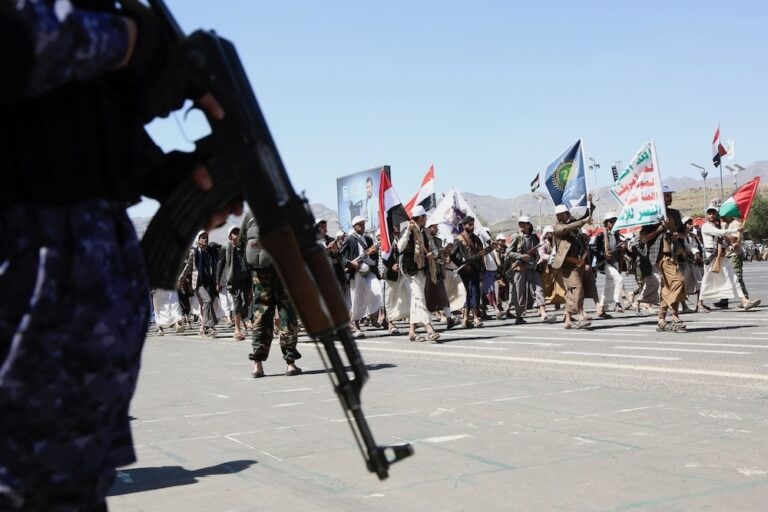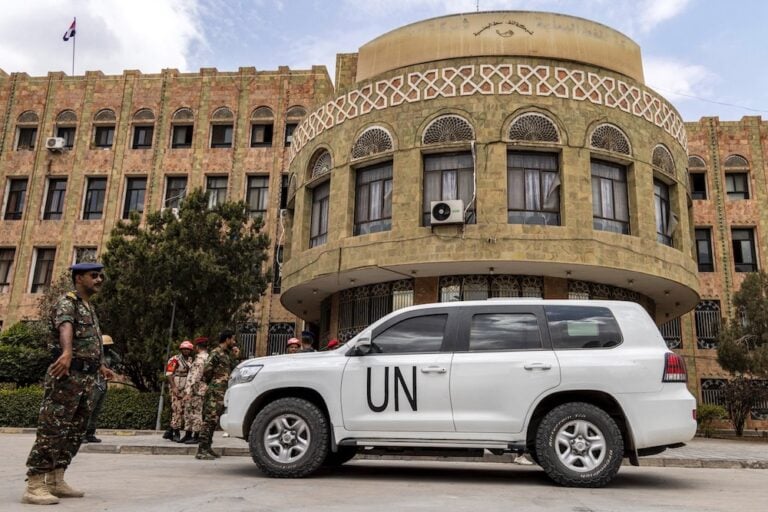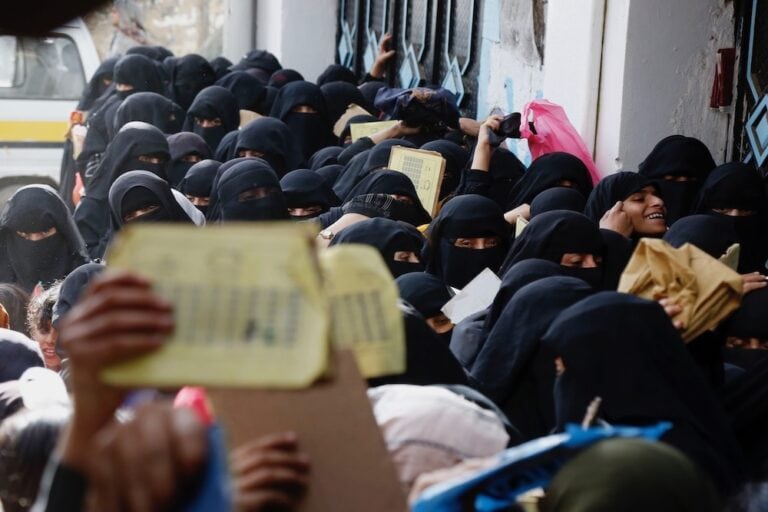(CPJ/IFEX) – CPJ has expressed its deep concern about continuing state restrictions on the press in Yemen. CPJ is particularly dismayed by the authorities’ ongoing harassment of the thrice-weekly newspaper “Al-Ayyam” and the closure of the opposition weekly “Al-Shoura”. CPJ has called on President Saleh to assume a leadership role to help reverse state restrictions […]
(CPJ/IFEX) – CPJ has expressed its deep concern about continuing state
restrictions on the press in Yemen. CPJ is particularly dismayed by the
authorities’ ongoing harassment of the thrice-weekly newspaper “Al-Ayyam”
and the closure of the opposition weekly “Al-Shoura”. CPJ has called on
President Saleh to assume a leadership role to help reverse state
restrictions on the press and to guarantee the right of journalists to
practice their profession freely.
Over the last ten days, state prosecutors have twice summoned “Al-Ayyam”‘s
editor-in-chief, Hisham Basharaheel, for questioning about news reports
published in the paper in recent weeks. On 11 September 1999, he was called
in for questioning about an interview with the London-based Muslim cleric
Abu Hamza al-Masri that was published in “Al-Ayyam” in August. During his
interrogation, Basharaheel was accused of publishing information from
“unreliable sources.”
Seven days later, on 18 September, he was again summoned by prosecutors in
Aden to answer questions about an “Al-Ayyam” news item that apparently
misquoted passages from the Holy Quran. The item, published in July,
reported on a statement issued by an opposition party where the incorrect
text originally appeared.
It is unclear whether prosecutors intend to file charges against Basharaheel
in either case. However, CPJ views these most recent incidents as part of a
continuing pattern of harassment against the newspaper, known for its
independent coverage of political affairs in Yemen. On 4 August, a Yemeni
court sentenced Basharaheel and writer Ali Haitham Ghareeb to suspended
prison terms of six and ten months respectively on charges that included
“instigating national feuds,” “instigating the spirit of separatism,” and
“harming national unity.” The charges were brought in May in response to an
article by Ghareeb that criticised the structure of local government in
Yemen (see IFEX alerts).
CPJ is also deeply concerned about the 16 September appellate court ruling
ordering the closure of the opposition weekly “Al-Shoura”. The court’s
decision stemmed from an incident that occurred in February, when two
separate versions of the paper were published under the same name, thus
violating provisions of the press law. But according to journalists from
“Al-Shoura”, Yemeni security authorities had helped publish the second
version of “Al-Shoura” as a subterfuge.
Although the newspaper has appealed the decision to Yemen’s highest court,
CPJ has learned that President Saleh’s government has issued an order for
the paper’s closure. Journalists at “Al-Shoura” have charged that the
paper’s closure was politically motivated with the aim of sidelining an
opposition newspaper in advance of the Thursday 23 September presidential
election.
Recommended Action
Send appeals to the president:
as flagrant violations of the right to free expression as guaranteed by
international press freedom standards
Human Rights
guarantees journalists the right to “seek, receive, and impart information
and ideas through any media and regardless of frontiers”
authorities cease all legal and other forms of harassment against
journalists in response to their professional work
publication immediately, without further interference from the state
Appeals To
His Excellency President Ali Abdullah Saleh
c/o His Excellency Ambassador Abdul Wahab al-Hajjri
Embassy of the Republic of Yemen
2600 Virginia Avenue, N.W.
Washington, DC 20037
Fax: +202 337 2017
Please copy appeals to the source if possible.


